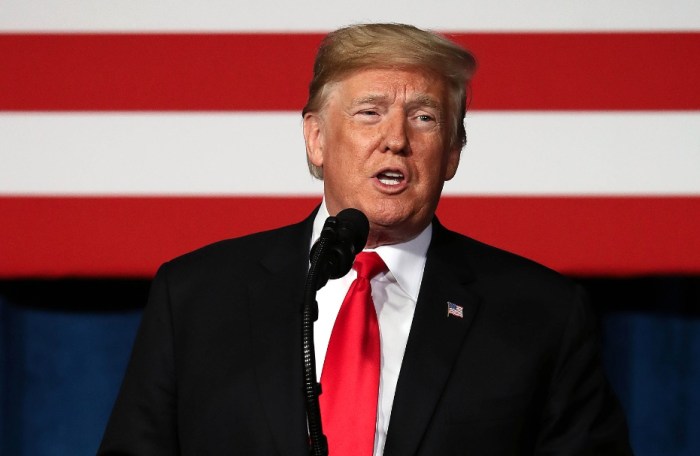President Trump‘s latest round of tariffs on goods imported from China could raise prices for consumers as soon as next week.
On Monday, the White House announced that Trump’s proposed 10 percent tariff on $200 billion of Chinese imports would go into effect on Sept. 21, then increase to 25 percent on Jan. 1. China responded by slapping $60 billion in tariffs on American goods.
Trump had already enacted $50 billion in tariffs against China, on top of his earlier tariffs on steel and aluminum.
The escalating trade war — which the president is conducting against the advice of his own Cabinet officials and Republican members of Congress — looks set to raise prices on these categories of goods, among others:
Food, soda, shampoo and personal care items. This month, the National Retail Federation sent a letter to Congress warning that the proposed tariffs would impact a wide range of consumer goods. “These are products purchased by nearly every American household,” it said. “Many are staples, and account for relatively large shares of total household spending of lower-income households (food, beverages, personal care products, appliances, for example).”
Seafood, including canned tuna. Seafood suppliers are largely based in China. Chicken of the Sea executive Valentin Ramirez said the company “cannot absorb the costs of tariffs and must pass them on to consumers.”
Home appliances. Vacuums, refrigerators, microwaves, coffee makers — you name ’em, they’re imported from China. “Imposing additional duties on the subject products would cause disproportionate economic harm to U.S. interests, including small- and medium-size businesses and consumers,” SharkNinja CEO David Stephenson wrote to Congress.
Bicycles. More than 90 percent of bikes are imported from China, and 40 percent of imported bike parts come from that country. The CEO of Trek Bicycles said Trump’s tariffs would cost that company $30 million each year. “Trek will be forced to pass these costs on to the consumer, raising prices on adult bicycles, kids’ bicycles, components and key bicycle safety equipment like helmets,” said Robert Burns.
Furniture, cribs and quilts. A small North Carolina business specializing in leather furniture sent a letter to Congress lamenting that “there is no leather upholstery business in America anymore” and that tariffs would hurt the company by forcing it to pay more for materials. Delta Furniture, a New York-based children’s furniture maker, warned that the tariffs could raise the price of a $200 crib up to 50%, “making it more difficult for families of modest means to afford such a crib,” and potentially endangering child safety as poorer parents turn to lower-quality goods. And most feathers are imported from China, meaning that many down jackets, pillows and quilts will be marked up.
Economists have warned that the tariffs will slow U.S. economic growth. A 0.1 percent GDP slowdown is already expected from Trump’s first round of tariffs earlier this year.



















